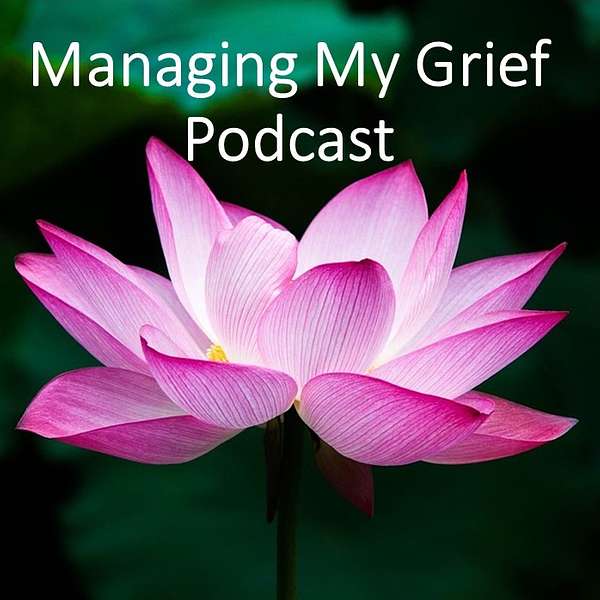
Managing My Grief
Managing My Grief
MMG12: Types of Grief: Complicated Grief (Traumatic/Prolonged/PCBD)
Show 12 Types of Grief: Complicated Grief (Traumatic/Prolonged/PCBD)
Intro
I’m glad you chose to join me for this discussion on Complicated Grief.
Did you know that there are many types of grief?
Death alone is challenging to grieve, but there are other losses that occur after losing companionship, such as changes in family roles, financial changes, and loss of dreams of what could have been. Keep in mind that the type of grief we’ll be discussing isn’t “good” or “bad,” it’s a mere way for you to identify what you are experiencing. When you understand what you are experiencing, it can be used as a grounding place and it can bring normalcy to the experience, which in itself is gratifying and beneficial.
The type of grief we’ll be discussing today has a few different names and they are Complicated Grief, Traumatic Grief, Prolonged Grief and/or Persistent Complex Bereavement Disorder. For sake of time and me not wanting to repeat all four names every time, we’ll use Complicated Grief, but understand that it can and many times is used interchangeably with the Traumatic Greif, Prolonged Grief, and Persistent Complex Bereavement Disorder. A side note, Persistent Complex Bereavement Disorder, or PCBD is located in the DSM along with other descriptions related to experiencing loss that are classified based on the intensity of the grief. In a later show, we’ll focus specifically on the different descriptions of grief that are provided in the DSM, but for now, let’s explore Complicated Grief.
There are several factors that play a role in identifying Complicated Grief. An overview definition is Complicated Grief is when Normal Grief becomes severely long in duration and the grief significantly impairs the ability for one to function.
A factor that plays a role in identifying Complicated Grief is the nature of the loss. For example, a loss sudden, a loss due to violence, or multiple losses. If the loss is violent in nature, many times people will use Traumatic Grief instead of Complicated Grief, but again, the names can be used interchangeably.
Several other factors that help with identifying Complicated Grief are the relationship, life experiences, and social issues. One common life experience that may cause someone to be predestined to experience Complicated Grief is trauma. Many times with someone experiences a traumatic events, such as a natural disaster, any type of abuse, or being bullied it can be a precursor to them experiencing Complicated Grief at some point in their life.
I enjoy watching mini documentaries about a spectrum of topics. Last week I watched a mini documentary about a gay gentleman living in a small rural town in Louisiana. The documentary was made in the late 80’s early 90’s. There were a lot of social issues related to this time period, his life style, and geographical location . The gentleman shared his experience growing up gay in his community, finding love, losing love due to AIDS, and finding love again. He said he learned from a school aged boy that many of the children would call his house, the House of AIDS. Although some people in the community were derogatory, majority were supportive, especially when his partner died. He shared how people and businesses from the small town sent him cards and letters sharing their support and sadness for his loss. He shared how thankful he was to receive the outpour of encouragement and a little surprised by some of the people’s empathy. In this case, he had a lot of support, but that’s not always the case. There are many times, especially in the 80’s and years prior, when gay person’s partner dies, they aren’t given support, or their experience is minimized and unfortunately even regarded as unimportant. As a result, Disenfranchised Grief or Ambiguous Grief is experienced, resulting in some grievers struggling to grieve. Instead of healing, they go in the opposite direct